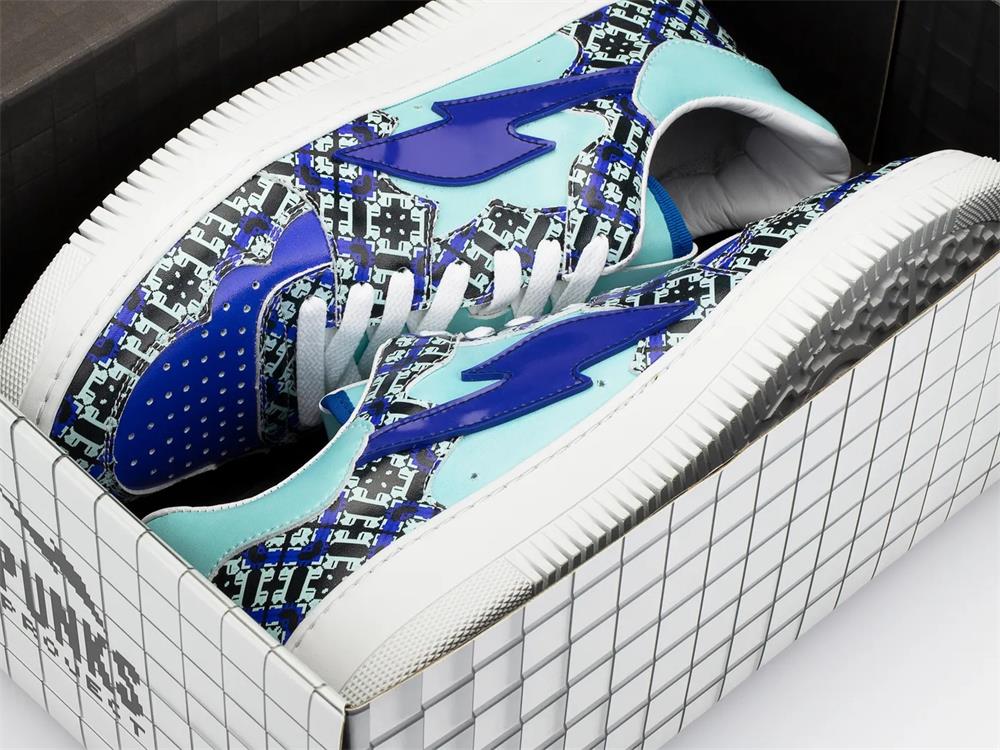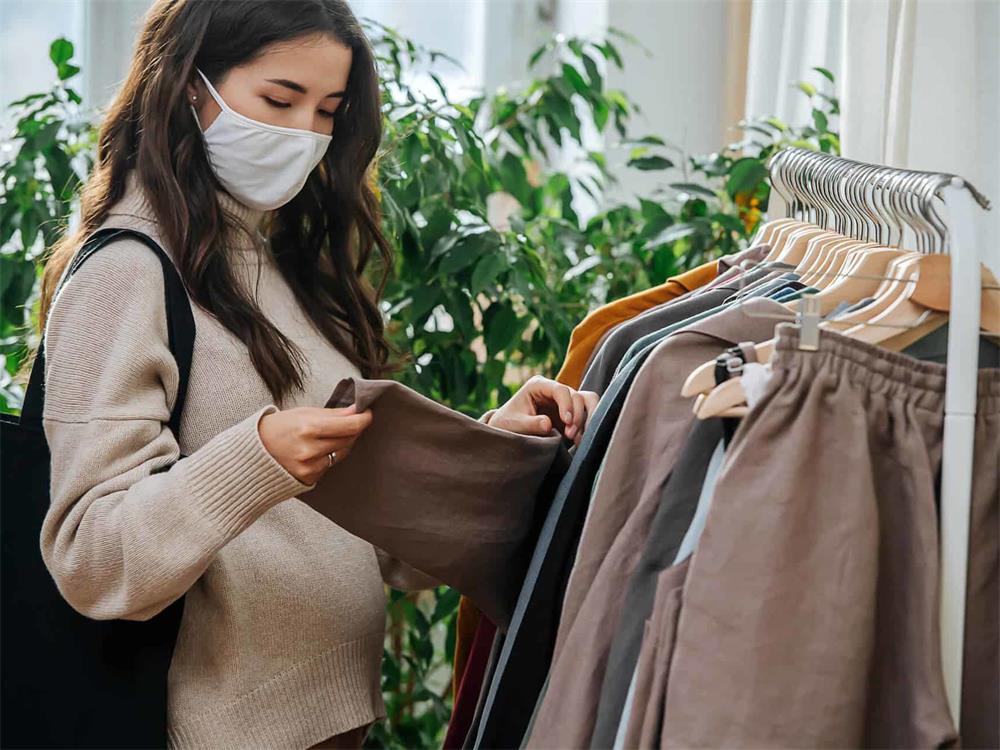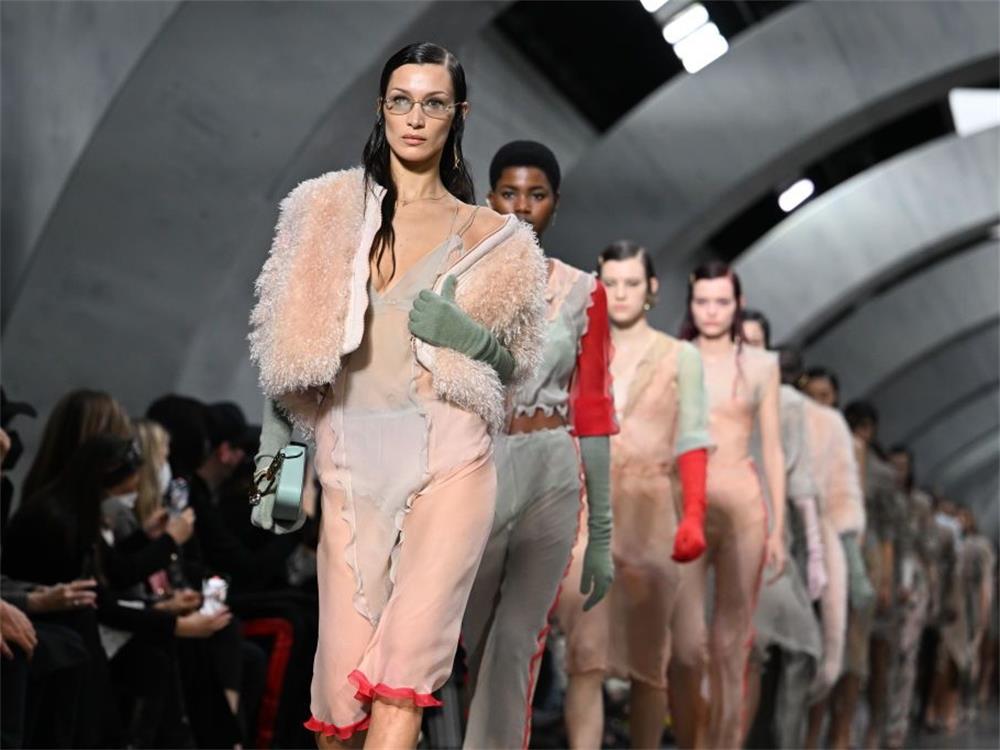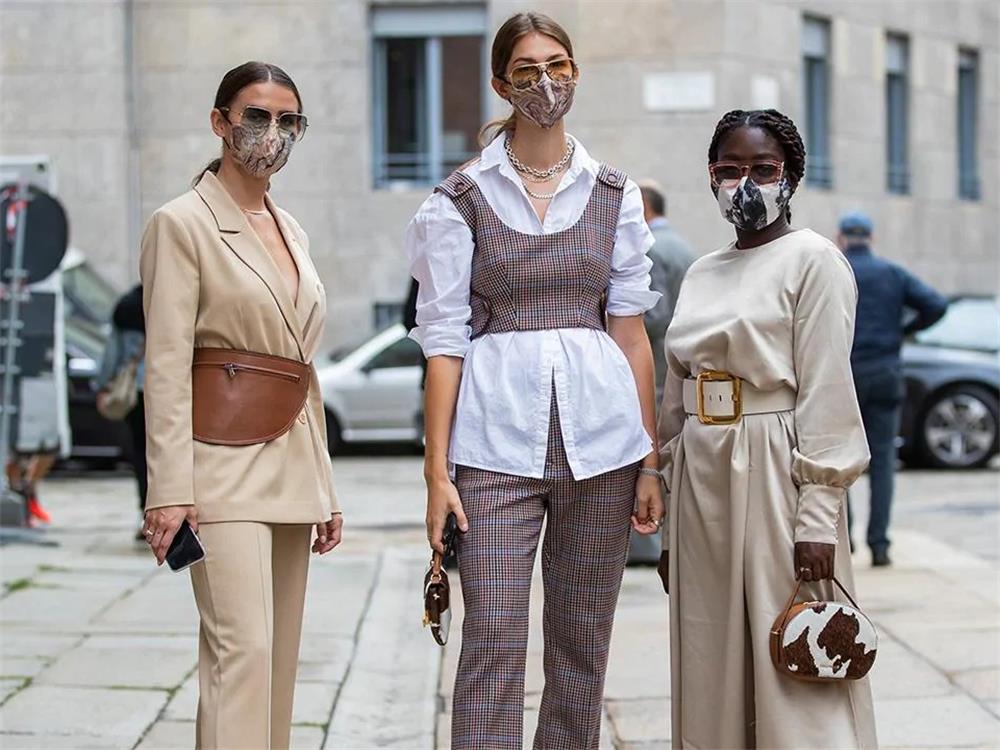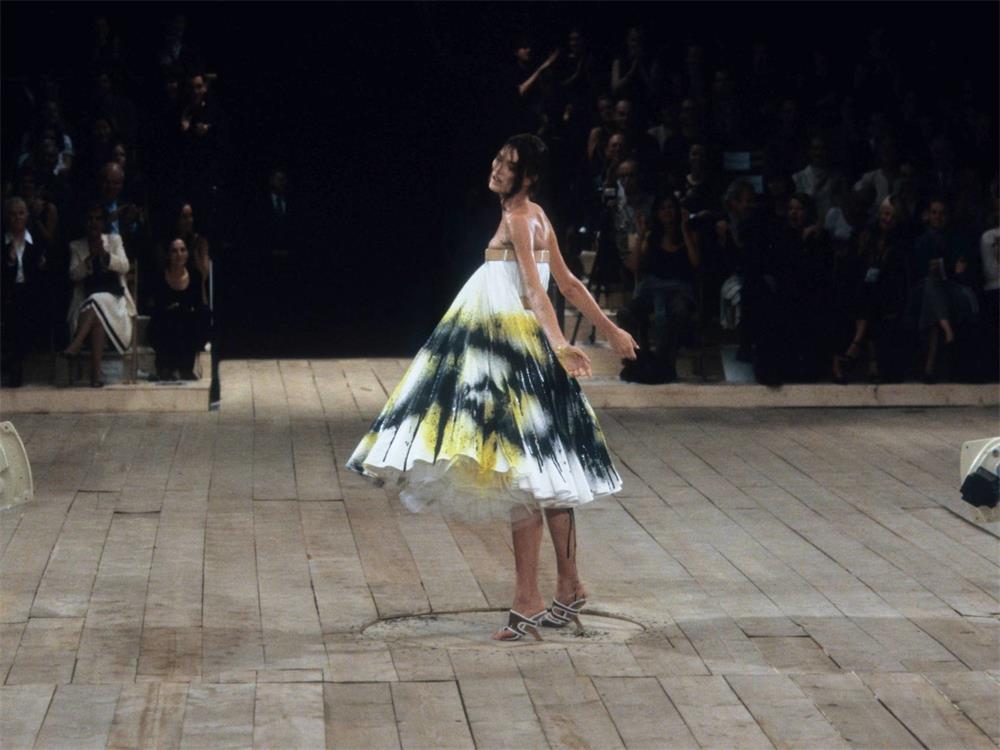Contents
Fashion is one of the most influential and creative industries in the world, but also one of the most wasteful and polluting. According to the United Nations, the fashion industry is responsible for 10% of global carbon emissions, and 20% of global wastewater, and consumes more energy than the aviation and shipping industries combined. Moreover, the fashion industry exploits millions of garment workers who face low wages, unsafe working conditions, and human rights violations.
In response to these alarming facts, a growing movement of sustainable fashion has emerged in recent years, aiming to transform the fashion industry into a more ethical and eco-friendly one. Sustainable fashion (also known as eco-fashion) is a term describing products, processes, activities, and people (policymakers, brands, consumers) that aim to achieve a carbon-neutral fashion industry built on equality, social justice, animal welfare, and ecological integrity.
But what does sustainable fashion mean in practice? How can we distinguish between genuine sustainability efforts and greenwashing tactics? And what are some of the best examples and brands of sustainable fashion? In this article, we will explore these questions and more.
What Makes a Fashion Brand Sustainable?
There is no single or universal definition of sustainable fashion, as different brands may adopt different approaches and strategies to reduce their environmental and social impact. However, some of the common aspects that make a fashion brand sustainable are:
- Local sourcing and production: By sourcing materials and producing garments locally or regionally, brands can reduce their carbon footprint, support local communities and economies, and ensure better quality control and transparency.
- Transparency across the supply chain: By disclosing information about their suppliers, manufacturers, workers, materials, processes, and policies, brands can increase their accountability and credibility, and allow consumers to make informed choices.
- Traceability of work processes and raw materials: By tracking and verifying the origin and journey of their products from farm to store, brands can ensure that their products are made ethically and responsibly, and avoid issues such as fraud, contamination, or human rights violations.
- Environmentally friendly raw materials: By using natural, organic, recycled, or upcycled materials that have a lower environmental impact than conventional ones, brands can reduce their water consumption, energy use, chemical emissions, and waste generation.
- Safe working conditions and fair wages: By providing decent work environments and living wages for their workers, brands can respect their human rights, dignity, and well-being, and prevent exploitation, abuse, or discrimination.
- Maker well-being: By engaging with their workers and communities in a respectful and meaningful way, brands can foster a culture of empowerment, collaboration, and creativity.
Sustainable Fashion Examples
Sustainable fashion is not a monolithic or homogeneous concept. Rather, it encompasses a variety of practices and initiatives that aim to address different aspects of sustainability in fashion. Some of the most common examples are:
- Ethical fashion: This refers to fashion that respects the human rights and dignity of all people involved in the production process. Ethical fashion brands ensure that their workers are paid fairly, treated well, and have safe and healthy working conditions. They also avoid using materials or processes that harm animals, such as fur, leather, or animal testing.
- Eco-friendly fashion: This refers to fashion that minimizes its environmental impact by using materials and processes that are renewable, biodegradable, or recyclable. Eco-friendly fashion brands avoid using synthetic or toxic materials, such as polyester, nylon, or pesticides. They also reduce their water and energy consumption, greenhouse gas emissions, and waste generation.
- Vegan fashion: This refers to fashion that does not use any animal-derived materials or products, such as wool, silk, feathers, or beeswax. Vegan fashion brands promote animal welfare and compassion by using alternatives such as cotton, hemp, bamboo, or synthetic fibers. They also avoid using animal-based dyes or glues.
- Slow fashion: This refers to fashion that opposes the fast fashion model of mass production and consumption. Slow fashion brands produce fewer but higher quality garments that last longer and have more value. They also encourage consumers to buy less but better, and to care for and repair their clothes instead of discarding them.
- Conscious fashion: This refers to fashion that is aware of its impact on the planet and society, and strives to make positive changes. Conscious fashion brands educate consumers about the issues and challenges facing the fashion industry, and inspire them to take action. They also support social and environmental causes through donations, campaigns, or collaborations.
- Circular fashion: This refers to fashion that follows the principles of circular economy, which aims to eliminate waste and pollution by keeping materials and products in use for as long as possible. Circular fashion brands design their products for durability, repairability, and recyclability. They also offer services such as rental, resale, or take-back programs to extend the life cycle of their products.
Best Sustainable Fashion Brands
There are many brands that claim to be sustainable, but not all of them are genuine or consistent in their efforts. To help you find the best sustainable fashion brands, we have compiled a list of 10 brands that meet some or all of the criteria mentioned above. These brands are:
- Everlane: Everlane is a US-based brand that offers timeless and versatile clothing for men and women. Everlane is known for its radical transparency policy, which reveals the cost breakdown, factory details, and environmental impact of each product. Everlane also uses organic cotton, recycled polyester, and other eco-friendly materials in its products.
- Reformation: Reformation is a US-based brand that offers feminine and trendy clothing for women. Reformation is committed to reducing its carbon footprint by using renewable energy sources, recycled packaging, and carbon offsets. Reformation also uses sustainable materials such as Tencel, linen, and deadstock fabrics in its products.
- Patagonia: Patagonia is a US-based brand that offers outdoor clothing and gear for men, women, and children. Patagonia is a pioneer in environmental activism and social responsibility in the fashion industry. Patagonia uses organic cotton, recycled polyester, hemp, and other eco-friendly materials in its products. Patagonia also offers a repair service and a resale platform for its products.
- People Tree: People Tree is a UK-based brand that offers ethical and organic clothing for women. People Tree is a certified fair trade brand that works with artisans and farmers in developing countries to produce its products. People Tree uses organic cotton, handwoven fabrics, natural dyes, and other sustainable materials in its products.
- Stella McCartney: Stella McCartney is a UK-based brand that offers luxury clothing and accessories for women. Stella McCartney is a vegan brand that does not use any animal-derived materials or products in its products. Stella McCartney also uses organic cotton, recycled polyester, regenerated cashmere, and other eco-friendly materials in its products.
- Eileen Fisher: Eileen Fisher is a US-based brand that offers simple and elegant clothing for women. Eileen Fisher is a certified B Corporation that meets high standards of social and environmental performance. Eileen Fisher uses organic cotton, recycled polyester, hemp, and other eco-friendly materials in its products. Eileen Fisher also offers a take-back program and a resale platform for its products.
- Veja: Veja is a French-based brand that offers sneakers and accessories for men and women Veja is a fair trade brand that sources its materials and produces its products in Brazil Veja uses organic cotton recycled polyester wild rubber and other sustainable materials in its products.
- Outerknown: Outerknown is a US-based brand that offers casual and surf-inspired clothing for men and women. Outerknown is a certified B Corporation that meets high standards of social and environmental performance. Outerknown uses organic cotton, recycled polyester, hemp, and other eco-friendly materials in its products. Outerknown also offers a lifetime guarantee and a repair service for its products.
- Girlfriend Collective: Girlfriend Collective is a US-based brand that offers activewear and loungewear for women. Girlfriend Collective is known for its inclusive and diverse sizing and styles. Girlfriend Collective uses recycled polyester, recycled nylon, cupro, and other eco-friendly materials in its products. Girlfriend Collective also uses recycled packaging and carbon offsets in its shipping.
- ThredUp: ThredUp is a US-based online platform that offers secondhand clothing and accessories for women and children. ThredUp is the largest online thrift store in the world, with over 35,000 brands and millions of items. ThredUp helps consumers to buy and sell pre-loved clothes, and to reduce their environmental impact and save money.
What Can We Do for Sustainable Fashion?
As consumers, we have the power to influence the fashion industry and to support sustainable fashion. Here are some of the things we can do to make a difference:
- Educate ourselves: We can learn more about the issues and challenges facing the fashion industry, and the solutions and alternatives that exist. We can also research the brands we buy from, and check their sustainability credentials and practices.
- Buy less but better: We can reduce our consumption of fast fashion, and instead invest in quality clothing that lasts longer and has more value. We can also choose clothing that is versatile, timeless, and suitable for our needs and preferences.
- Care for and repair our clothes: We can extend the life span of our clothes by washing them less frequently, using gentle detergents, air drying them, and storing them properly. We can also fix minor damages such as holes, tears, or buttons, or seek professional help if needed.
- Reuse and recycle our clothes: We can give our unwanted clothes a new life by donating them to charity, selling them online or offline, swapping them with friends or family, or upcycling them into new items. We can also buy secondhand clothes from thrift stores, consignment shops, or online platforms.
- Support sustainable fashion brands: We can vote with our wallets and support the brands that are making efforts to be more ethical and eco-friendly. We can also spread the word about these brands and encourage others to join us.
Conclusion
Sustainable fashion is not a trend or a fad. It is a necessity and a responsibility for the fashion industry and for us as consumers. By adopting sustainable fashion practices and supporting sustainable fashion brands, we can make a positive impact on the planet and society, while still enjoying the beauty and creativity of fashion.


